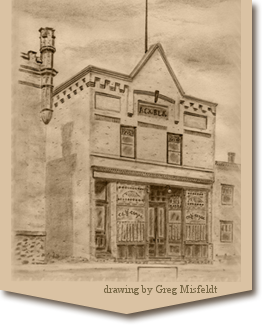
- This event has passed.
KELLY HUNT
November 16 @ 8:00 pm
$20“Standing shoulder to shoulder with contemporaries like Gillian Welch and Rhiannon Giddens…folk music harking back to the stripped-down sounds of Leadbelly, Robert Johnson and Woody Guthrie.” — JOHN VAITES [AMERICANA UK]
On the walls of any local used music shop there hangs a gallery of mysteries. Picked up and handed down across the decades, each instrument contains the imprints and stories of those who have played it before, most of which remain untold. For New Orleans-based songwriter Kelly Hunt, the most intriguing of these stories is the origin of her anonymous calfskin tenor banjo. “I really wasn’t looking for it,” she says, “but I opened up the case and found a note saying, ‘This banjo was played by a man named Ira Tamm in his dog and pony show from 1920 to 1935.’ It was unlike any banjo I’d ever heard…so warm and mellow, with an almost harp-like quality to it, very soulful”—apt words for the Memphis native’s debut album, Even The Sparrow, which was released in May 2019 and nominated for the International Folk Music Awards “2019 Album of the Year.”
The daughter of an opera singer and a saxophonist, Hunt was raised in Memphis, TN amidst a motley mélange of musical influences ranging from Rachmaninov to Joni Mitchell to Mississippi John Hurt. She grew up singing in choirs, poring over poetry books, and writing her own music as a matter of course, first on piano then 5-string banjo. After being introduced to the banjo in college while studying French and visual arts, Hunt began to develop her own improvised style of playing, combining old-time picking styles with the percussive origins of the instrument. After college, Hunt embarked on a rambling path through career pursuits in farming, French breadmaking, and visual arts, ultimately landing in Kansas City, where she would go on to write and record her debut album, Even the Sparrow.
While reminiscent of modern traditionalists such as Gillian Welch, Even The Sparrow reveals an ineffable quality that hovers beyond the constraints of genre, à la Anais Mitchell and Patty Griffin. Over the span of a dozen songs, Hunt’s penchant for storytelling and intriguing arrangement cast a spell which No Depression describes as “the musical equivalent of a book you can’t put down, one you’ll want to revisit again and again to catch every nuance and turn of phrase.”
In “Men of Blue & Grey,” what begins as a Reconstruction-era ballad about the repurposing of Civil War glass plate negatives in a greenhouse roof soon becomes a meditation on the hope that growth and life may one day be able to emerge from the ruins of suffering and haunting of violence. “Across The Great Divide” turns an otherwise traditional accounting of spurned love into a philosophical epic of the ethics of forgiveness and freedom, evoking the ideas of Søren Kierkegaard and Walt Whitman.
(ALEXSI CAMPAGNE was also scheduled to appear this day, but the whims of the Canadian government’s visa promise will keep him away. We hope to reschedule for next year.)
